|
It's back for its third year. We will be opening the gates to the market garden to primarily celebrate the diversity of tomatoes, but also to give everyone an opportunity to see where the veg from Trill Farm Garden is grown, who it is grown by, and how we grow it!
There will be tours, demos, music, food, games, tomato throwing and a bar. Booking is essential, so please head to Tomato Fest for more details and to book.
0 Comments
Last April I quit my job as a research scientist, hung up my lab coat, and moved to Trill Farm Garden to start a season as a trainee grower here. I was totally new to market gardening, but enjoyed it so much that I’m back as a second-year trainee this season. What with a much wetter and sunshine poor spring compared to last year, and conscious decisions to adapt some of the ways we do things in the garden, there’s already a lot of new things to learn and think about. For those interested in how their food is grown, as well as those who like to grow food themselves, we thought we’d share our thoughts on some of these changes. New field, new crops (and green manures) Last year Trill Farm Garden took on an extra 2.5-acre field neighbouring the original market garden, but last season only cultivated a portion of it. This year, with the exception of a patch that will host a long-term green manure, we will be growing veg on most of the field. The motivations for taking on the field were: to be able to grow more seed crops, which in some cases require an isolation distance from other crops of the same species (more on this later); to free up space for more soil-restoring green manures as part of our crop rotations; and to be able to grow more crops for the winter veg boxes ourselves, ensuring these arrive with customers at peak freshness. This year we will be growing many more of our own leeks, squash, corn, drying beans, shallots, potatoes, cabbages, spring greens, and purple sprouting broccoli. We’re looking forward to seeing how all these grow in the new ground, and to experimenting with different green manure mixes sown underneath these crops. As well as annuals, we will also be growing more perennials in the new field. Perennial crops allow us to grow food without disturbing the soil as often, keeping living roots in the ground all year round and providing habitat for overwintering insects. Since perennial crops stay in the ground for longer, they can establish bigger root systems that have more interaction with fungal networks and microbes in the soil, allowing them to access more nutrients from the soil. This may account for the reportedly higher average nutrient density of perennial crops compared to annual (Toensmeier, 2020). Because perennials already have an established root system, some can also crop earlier than annual vegetables in the spring, providing food in the UK’s ‘hungry gap’. On top of all this, many perennial crops are delicious! We are starting off by growing lots more rhubarb, winter savory, oregano, different types of mint, sage and thyme, lovage, garlic chives, and Jerusalem artichokes. Lots more seed crops At Trill Farm Garden we have been experimenting with saving our own seed, as well as growing seed crops commercially for Real Seed Catalogue and Vital Seeds, for years. This is fueled by a desire to claw back seed sovereignty* in the UK, and to improve the availability and diversity of good quality organic seed for farmers and home growers alike. UK-grown seed is also likely to produce plants that are better adapted to our climate here. Last year we grew 9 seed crops, this year with more space and continued motivation we are growing nearly triple that! Each time we grow a new seed crop, it is an exciting opportunity to observe and nurture a plant’s growth right through its life cycle rather than just to the edible vegetative stage. Nurturing our soil biology Over the 13 years since Ash and Kate started Trill Farm Garden, there have been several evolutions in the way that beds have been prepared for growing crops, motivated by a desire to improve the drainage in the heavy clay, high water table market garden, as well as to foster a healthier ecosystem at and below the soil surface. These aims also always had to be balanced with the need for methods to be efficient and sustainable for a small team of people to use over 2.5 acres, year in, year out. This year might be the first year that we do not cultivate a single bed in the market garden, instead using black silage tarps to cover beds and kill off old crops and weeds before re-planting. Our polytunnel beds have always been ‘no dig’, but we are also trying to increase the organic matter in these beds whilst relying less on bought-in compost, and so are mowing down and shredding old crops in place and planting new crops straight through this mulch. In addition to adding organic matter and feeding soil biology, mulches like this help to retain moisture levels during the hot summer months. Inspired by the fascination with soil microbiology of TFG grower Holly Silvester, as well as Korean Natural Farming approaches, under Holly’s excited instruction we have started using more ‘inoculants’ to feed the microbes in our soils. She has built a productive worm farm in a crate, soon to be upgraded to an IBC tank, and we harvest vermicasts (worm poo!) to mix with seaweed, molasses, and comfrey and nettle ferments as a (hopefully) delicious offering to the microbes. Module-grown plants are soaked in this concoction before planting to try and kick off a close and productive relationship between plant root hairs and soil microbes as quickly as possible. We have started foliar feeding our fruiting summer crops that have just been planted out in polytunnels with similar potions to boost their growth, and will be experimenting with more of this, as well as ‘soil soaks’ combined with before-and- after soil testing and electron microscopy (see below!), as the season progresses. We are also trialing a compost extract rich in fungi and nematodes called ‘The Goop’ from the Soil Ecology Lab, treating some dwarf French bean, courgette and cucumber seed with the extract and leaving some untreated for comparison. Stay tuned for some of the results! * Seed sovereignty has been defined as a grower’s right to breed and exchange diverse, open-source seeds, which can be saved and are not patented, genetically modified or owned by one of the four agrochemical companies that control more than 60% of global seed trade. See https://www.theguardian.com/uk- news/2020/dec/28/seed-saving-movement-calls-for-seeds-to-be-publicly-owned Toensmeier, E., Ferguson, R. and Mehra, M., 2020. Perennial vegetables: A neglected resource for biodiversity, carbon sequestration, and nutrition. PLoS One, 15(7), p.e0234611. Written by Julia Spindel who has been training with us for the last two seasons
We are having a tomato celebration on 30th July. We will be showcasing the range of varieties and the diversity that they bring to the garden and to your plates! TO book go to the Tomato Fest page.
We were announced as winners of the Organic Research Centre's first YOFY award at a special 40th anniversary event at FarmEd on 30th September 2021.
The judges recognised our commitment to organic principles and how our attention to good soil management and biodiversity has helped us deliver quality vegetable production despite a farm with a high water table and poor drainage. We were also commended for their commitment to ongoing training, including our support for the Landworkers’ Alliance. Highly commended nominees included Juno Norman, The Wicton Farm Team and Rosa Holt. This is what was said about our award: The site is far from ideal in terms of vegetable cropping, having a high water table and difficult drainage issues, yet they have consistently produced quality crops with good yields. Soil management has been key to their success, along with innovative use of green manures. Widespread utilisation of biodiversity integral to farm cropping has also demonstrated a clear commitment to working with natural systems. They have also been a source of inspiration for many new and aspiring small-scale producers. Ashley has been involved in setting up the Landworkers Alliance, the Seed Sovereignty programme, the Mentoring Programme, and the Traineeship Programme. The judges recognised their commitment to organic principles, along with their quality vegetable production despite a farm with a high water table and poor drainage. They were also commended for their commitment to ongoing training, including their support for the numerous organisations. Commenting on his success, Ashley Wheeler said the farm had a focus on soil management, seed sovereignty and organic production methods. "Organic farming principles offer an opportunity for mainstream agriculture and horticulture to embrace nature-friendly farming and deliver sustainable and resilient food production across the UK. "That’s why we’ve been focused on supporting training schemes and mentoring young people as they embark on their careers in the industry,” he said. The award was presented at an event to celebrate ORC’s 40-year contribution to farming and agri-policy, held at the FarmED centre in the Cotswolds. More than 100 members of the industry attended the event, with presentations on the future of organic farming and priorities for research. Lucy MacLennan, ORC chief executive, congratulated the young farmers for winning the award, adding that this year was 'pivotal' for the future of British farming. "Low input and regenerative agriculture have become buzzwords in recent times, but our work doesn’t just seek solutions for low input agriculture. We push the boundaries by exploring no input agricultural practices to deliver truly sustainable food production for the whole agricultural community." We originally planned to pause the veg bags for around 6-8 weeks from end of February, but as we were able to continue to buy in great quality veg from Shillingford and South Devon Organic Producers & Riverford to supplement our salad and herbs we decided to continue. We are fairly confident that we will be able to continue the veg bags now all the way through. Slowly we are getting more of our own produce coming through too - spring onoins, spring garlic (use like garlic, but can be used raw like spring onions too), perpetual spinach and chard, radish, lots of herbs as well as the salad. New ordering system from next weekWe will be starting with our new ordering system from the week after next hopefully (week commencing 12th April). We will email all of our current customers with all of the details - you will just need to check that all of your information and orders are correct and you will need to input card details. Payments will all be lilnked up with orders from then, and it will be much simpler for you to add on extras to your veg bag or to change your order. As the season progresses we will add on more and more additional extras that you can add on from week to week if you want more of something. Eggs now available with your vegYou will be able to get eggs from us once we start with the new ordering system. Our good friends Harry and Emily run Haye Farm - just up the road, and Aaron looks after the laying hens that they move around the farm grazing the fields. We will also have a range of Chris’s preserves from the Old Dairy Kitchen that you can add onto your orders too, along with extras of whatever we have available from the garden, and some of the main crop vegetables that we buy in from other organic producers locally such as potatoes. Lots of spring plantingWe have had a really good spring in terms of the ground drying up enough for us to prepare early beds and get them planted up. So we have planted lots of early kale, radish, salad turnips, mustards, rocket, all the peas - mangetout, podding peas, purple peas, sugarsnaps, broad beans and lots of salad plants. We have planted some early crops in the tunnels - chard, spinach, beets, radish, kohl rabi, fennel and much more, and we have lots sown for later in the year - lots of tomatoes, peppers, shallots, onions, broccoli, french beans and all sorts! We have just started hoeing the first plantings - making the most of this warmth and drying wind. Packing shed upgradeWe finally got round to sorting out our packing shed, and also getting a coldstore put into the second room to help keep things as fresh as possible (almost all of our own produce is harvested on the day of deliveries or day before). This has made us all happy - its a lot more organised and easier to work in, and although its not quite there yet, it is a vast improvement on what it was like before! Finishing off the "winter jobs"I had a realisation this Spring, that the “winter job list” is always unrealistic. Much of it is only really suitable when the ground starts to dry up - digger work for sorting out drainage, putting up buildings, making tracks and the like. I often stress myself out trying to get these jobs done, and then they roll on into the spring. We have managed to get a fair bit done this winter, and one of the main things that has been in the pipeline for a couple of years is sorting out the drainage around one of the polytunnels. It has always been really wet down there, and I have known that there is a spring down there somewhere. Anyway, over the last week the ground has dried up enough to dig a trench along the edge of the polytunnel and divert the water away from the tunnel Forming a Community Interest Company (CIC)We had some excting news that we have received some funding through the Landworkers’ Alliance and the National Lottery which will enable us to make our veg more accessible to everyone, especially those on lower incomes. We will also be working with Chris (Old Dairy Kitchen) to deliver an exciting new programme that we will be delivering over the next few months to engage more people in how to cook and grow veg. We have just formed a CIC (The Food Solidarity Network CIC) along with Chris and Anna from the Old Dairy Kitchen, Mariel (who is exceptional at keeping things organised and making sure we crack on with it all!) and Ellen (who is currently on parental leave from the garden.
The idea for the project will be that along with the Old Dairy Kitchen we will be providing regular boxes of produce to those who sign up for the 6 month programme. We will be offering the boxes on a sliding scale and a good proportion will be free to those on low incomes/low wealth. The boxes will initially be meals prepared by Chris from the Old Dairy Kitchen, and as the programme progresses through the year he will be teaching basic cookery skills (through a variety of ways - online, newsletters, in person etc) allowing those who sign up to build knowledge and confidence, so that by the end of the project, members will have a wide range of simple cookery schools and be able to prepare quick, simple and nutritious meals from the raw ingredients that are in the boxes. The vegetables will be from us, along with other local producer friends of ours, and other produce will all be from other local producers who the Old Dairy Kitchen already work with. The project will not only help people discover new cookery skills and ideas, but build a strong understand of the basics of cooking with good quality produce to make really great meals relatively quickly. We see that there are major issues with our food system - one is that so much of the food system is in the power of large multinationals who drive down farm prices, and churn out food that is causing huge health problems across the country, and a broken farming community. The other is that we have all lost some of the real basic cookery skills which are part of our culture, and have become reliant on mass produced food that can be quickly prepared to feed ourselves and families, as we have less and less time to prepare home cooked meals. We hope to slowly change this starting with our local community. We hope to launch the project in the next 6-8 weeks so will keep you posted. We will be reaching out to groups already working with people in our community who struggle financially for food, but also those who struggle with the skills to cook. We hope to bring a wide group of people from different backgrounds all together (and hopefully by the end of the year even have an in-person get together and community meal). This is just the start of the work that we want to do with the newly formed CIC and we want it to continue for many years, bringing everyone together from our community so that we can learn and share great food together. I started writing this newsletter right at the end of last year, and then never sent it! I wanted to say a big thank you to those of you who have ordered our organic veg bags through the year. We have made 4134 deliveries since the end of March 2020! The year started off in a fairly familiar way - the familiar Spring anxieties…will it dry up enough to allow us to plant the early crops? It did, and we sowed according to our finely tuned sowing plans. Until the end of March, when we lost around 90% of our customers. We had salad growing in the ground and had planted the first crops, but had nobody to sell them to… The obvious option was to start a veg bag delivery scheme (something that my parents started to do around 30 years ago, and something that I vowed I would never do as I saw what happened to my parents through all of the work associated with it). So, that’s what we did. March is not the best time of year to start a veg box scheme, but we supplemented what we had with bought in produce from other larger organic growers in the South West. Within three days we had over 150 customers and within a week we were delivering veg bags around Lyme, Seaton, Axminster and all the surrounding areas. We (Ellen mostly) also quickly worked to change our cropping and sowing plans to add more diversity to what we grow and ensure consistent supply of veg for the bags. Our new trainees, Hester and Lucy were amazingly patient and understanding with our quick change of business and our slightly chaotic and hectic approach to work during that change. Emma also joined us last year to help us with the sowing, planting, weeding, harvesting and packing, and has been an amazing help too. Rob helped us with deliveries whilst he was on furlough and we are massively grateful to him for that. Zoe also joined us to help with deliveries and somehow grasped our chaotic approach to the box scheme and took on the deliveries of some rounds with a beautifully organised approach! Meanwhile in the garden Ellen managed everything and took huge amounts of stress off our shoulders - we will massively miss you this year Ellen (who has excitingly just had a baby!!) So, by the end of 2020 we were all feeling completely shattered and looking forward to slumping on the sofa for a couple of weeks - which is pretty much what we did. January has been a good month in the garden - getting things sorted for the year ahead, a few tentative sowings, and lots of tunnel washing, and it stayed relatively dry until the very end - when it got very wet! We have had some excting news that we have received some funding through the Landworkers’ Alliance and the National Lottery which will enable us to make our veg more accessible to everyone, especially those on lower incomes. We will also be working with Chris (Old Dairy Kitchen) to deliver an exciting new programme that we will be working on over the next few months to engage more people in how to cook and grow veg. We will be looking to link up with local groups and organisations who work with marginalised groups and those on lower incomes, so please get in touch if you have ideas/contacts.
We have also just started to accept Healthy Start vouchers, so anybody who is eligible for these can use them to get veg from us - we will also discount our veg bags for anyone who is using these vouchers to make them more affordable). New baker and option to add bread for Tuesday deliveriesAs Chris is not regularly baking, we will be supplying bread from Surya at Wellbread in Tytherleigh from now. This is also available to Teusday customers as well as Friday customers. He bakes with all organic ingredients and offers wholemeal, white or granary sourdough loaves. You can add this to your veg bag as an extra (or just give us an email if you would like to add it to your order). Don’t forget you can also add other extras to your order like onions, potatoes and extra salad if you wish. New online ordering system coming soonWe are very excited about almost being ready to launch our new, much simpler and user friendly online shop very soon. It will make our lives much less stressful, and hopefully yours too! Continuing the veg bags for a little longer…We were planning to stop the veg bags for 6-8 weeks from the end of February, but have decided to try and continue into March as long as we can get good quality veg from other organic producers in Devon. Sadly the cafes and restaurants who we usually supply will probably still be closed through March, so we will have plenty of salad, and as long as we can supplement this with other seasonal organic veg from the other producers that supply us we will continue the bags. We will keep you posted if we have to stop deliveries for a few weeks. A surprise for one of our customers next weekChef Tom Hunt who came to the farm in 2019 to cook and take photos with Jenny Zarins for his book “Eating for Pleasure, People & Planet” has kindly given us a copy of his book for us to offer to one of our customers. All of next week’s deliveries will get a postcard in their veg bag, and one of these postcards will have a comment on the back letting you know if you have won the book. Let us know if you get this, and we will deliver the book the following week. In the meantime here is a recipe from tom’s book… Getting through January is not always easy for a grower or gardener. Having said that, I have quite enjoyed January this year. Perhaps it has been the fair share of cold, crisp, blue skied day and maybe just appreciating having the luxury of being able to work outside (which of course does have its drawbacks, but personally speaking these are far outweighed by the benefits of being surrounded by nature). February brings us longer days - and the beginning of sowing the first seeds for early outdoor crops and some of the tunnel crops too. Don’t let that panic you if you haven’t yet thought about sowing anything - there is plenty of time before anything really needs to be sown. Growing commercially means that we need to maximise the space that we have and we make the most out of the polytunnels that we have as well as using fleece to protect early crops. We also have a dedicated propagating tunnel with heated benches to start off our seedlings, so we can start them a little earlier than normal. For home gardening it is usually best to wait until March for most sowings. We experienced the first shock of Brexit this January when trying to order seeds from a couple of European seed companies who have a great range of organic seed available - including many varieties that are not available from UK seed companies. After scrolling through the online catalogues adding to our basket we went to fill in payment and delivery details and found that we were not able to import seed from the EU to the UK. The phytosanitary checks required would be too costly for the seed companies to incur for retail orders. This really brought home the vulnerability of the seed system and how reliant we are on a small number of companies who control the majority of the seed that is grown commercially. We have, for a few years now, saved seed both for ourselves, to swap and commercially for a couple of small seed companies in the UK, but having now seen the result of having relatively limited availability of seed varieties we are really thinking more about producing more seed and the importance of seed sovereignty. We were lucky to get our orders in to the UK companies before many of them closed their online shops as they were overwhelmed with orders from growers and a huge rise in sales to home gardeners growing their own since the first lockdown last March.
Seed is at the heart of our food systems. Without control over the seeds that we use to grow food we have very little control over our food systems. Saving seed and being involved in projects such as the South West Seed Savers allows us more autonomy. We can keep interesting varieties alive and bring more diversity to our fields. If each seed that is sown brings hope, then each seed that is saved brings back more control of our own food systems. Christmas veg bags, delivery dates and new Salad Growing and Market Gardening Course dates12/7/2020 We will be offering the usual medium and large veg bags for the runup to Christmas, but will also be offering a Bumper box (£30) for those of you who need a little more veg over the Christmas period but also to keep you going for a little longer than usual, as there will be a two week pause before we restart the bags again on the week commencing 11th January 2021. So, our final veg bag deliveries/collections will be on Tuesday 22nd December (for those of you who usually get your veg on a Tuesday) and Wednesday 23rd December (for those of you who usually get your veg on Fridays). Please note that on your account on Buckybox it will still say delivery day is 25th December! Please note, that all orders will need to be in by Saturday 19th December for these deliveries. We are offering the Christmas veg bags plus extras that you can add onto your order. If you would like to change your order from the regular bag that you get, it is probably easiest to add a new order for the Christmas week by logging onto buckybox (https://store.buckybox.com/trill-farm-garden) and then just make sure that you change payment for that week. Then you can put an order in to change back to your usual bag for January. Sorry - we realise that the Buckybox system isn't the most flexible - we are looking to change over to a more user friendly system next year!! Alternatively just email us with any order change and we can sort it out for you! In addition to the "extras" that will be available from us over the Christmas week (Onions, Potatoes, Sprouts, Red Cabbage, Squash, Parsnips, Leeks, Swede, Salad, Bread) there will be an opportunity to donate to help get food to people experiencing food poverty in our area. All donations will be used to supply the food bank with good fresh produce. Please make sure you tick "Include extra items with next delivery only" when you add any extra orders onto your Christmas week order. New Market Gardening and Salad Growing course dates for next yearWe are excited to announce new dates for our popular 3 day Introduction to Market Gardening course and our Salad Growing: Spring & Summer and Salad Growing: Autumn & Winter courses. We have a new addition to our Market Gardening Course, bringing in the wonderful Lally Owen and Tomas Carolsfeld from Springtail Farm who will be giving us a farm tour of their relatively new market garden. One day will be with us at Trill Farm Garden and one day with Ruth Hancock at Fresh and Green near Ottery St Mary. Find out more information and book on our Market Gardening course page. Our seasonal Salad Growing courses will focus on how we grow salad through the year, with information on propagation, successions and planning in the Salad Growing: Spring & Summer course and polytunnel production, growing for restaurants, harvesting techniques, pests and diseases and irrigation in the Salad Growing: Autumn & Winter course. Find out more information on these courses on the Salad Growing: Spring & Summer and Salad Growing: Autumn & Winter course pages.
We have had a rethink about doing the organic veg bags over winter and have decided that after a couple of weeks off over Christmas we will continue to deliver veg bags through January and February, up until early March. We will then pause the veg bags for about 6-8 weeks, until mid-end of April. The reason for doing this is that we can still get good quality produce in from other local growers through January and February, but March is the beginning of the end of stored produce in the UK and the quality declines rapidly (which is what we found when we started the veg bags this year). We can then start producing some of the early veg in our polytunnels like radish, spring onions, the first greens for the bags in April. We will of course keep you all posted and give you proper dates for all of this, but for now the last deliveries of the year will be on the week commencing 21st December (Friday deliveries will probably be on Wednesday 23rd that week). The veg bags will then restart on the week commencing 11th January 2021. Christmas veg bags We will be offering special organic Christmas veg bags for the week commencing 21st December. We have not finalised the contents, but they will include all the favourites - sprouts, potatoes, parsnips, red cabbage and the rest, plus our salad of course. We will also be offering a Bumper Veg Bag for bigger families. We will send out an email with more details of contents and pricing for the Christmas veg bags over the next few weeks. We will also be offering some "extras" for the Christmas week if you want to add on more of something to bulk up your order. We recommend looking at the Old Dairy Kitchen's Pantry, who will be offering amazing hampers of produce from local producers to feast on over Christmas. Along with most of the hospitality sector they have suffered a lot this year, so if you have the means please do support them so that they can keep going next year! Anna will also be making her amazing wreaths again this year, so get in touch if you are interested in getting one of these too. Our Community In addition to the "extras" that will be available from us over the Christmas week, there will be an opportunity to donate a small amount to help get food to people experiencing food poverty in our area. We will match the donations ourselves along with donating produce to our local food bank (which we have been doing since June). It has been a strange year, but it has really hit people who were already suffering financially before Covid and we want to do as much as we can to even out the inequalities in our local community. Next year we will be looking into working more with local organisations and to offer cheaper veg bags for those who are on lower income/lower wealth. This is something that will take a bit of work in terms of the administration involved but we hope to get this up and running by next summer. If anyone has any links to local groups who are working on this please let us know as it would be good to link up with existing groups. What's happening at Trill?
In the last few weeks Trill has entered a new phase as Romy Fraser who owned the farm for 13 years has sold it. Romy will be keeping a hold of some of the land up at Trinity Hill and along with her daughters Lara and Tamsin have exciting plans and ideas centering around their core values of nature, health and education. Sign up to their newsletter to here more about their plans for the future. We have been at the farm for over 10 years and will always be grateful to Romy for the opportunity that she gave us here - offering us a market garden to do what we wanted with and also building an amazing farm to bring up our family as well as creating a space where we have been able to share our experience and knowledge with many others through the traineeships and courses that we run. We welcome Roland, Olga and their family to the farm who we look forward to working with in the years to come. Their interest in conservation will mean more woodland being planted and more wildflower meadows being introduced. Finally a huge thanks to everyone who has helped us in the garden this year. Lucy has come to the end of her traineeship with us, but will be comtinuing to work part time with us next year. Meanwhile, Hester, who has also been training with us will be continuing the traineeship next year which is great news for us! Emma will continue to work in the garden next year too, whilst Ellen who has been working in the garden and helping to run it with us for the last 5 or so years will be going on parental leave at the end of the year. So, changes are happening here, but we will continue to grow as much organic veg as possible on our small patch of ground, always trying out different techniques and varieties to keep things interesting! Next few weeks...We will be getting into the autumn and winter projects over the next few weeks now that all of the polytunnels are planted up. This will include redesigning our packing shed to make more space for packing the veg bags alongside our wholesale orders, cleaning the polytunnels, making a shelter for our tractor, and if it dries out a bit, or we have some heavy frosts, sorting out the drainage around some of the polytunnels as well as moving compost around the garden to mulch some of the beds. Finally we have got almost all of the outdoor plantings done for our restaurant and veg bag customers - just a few salad leaves, and the garlic to plant next month and that's about it. Because we try and make the most out of all of the space in the garden we are often trying to clear beds of old crops as soon as they are over and replace with new plantings straight away. This is great to make sure that the garden is as productive as possible, but it is a lot of work and we got a little bit behind this summer with getting all of the plantings in on time, but hopefully it will be a good, warm autumn so the plants settle in nicely. Below is all of the chicory that will go into our salad mix throughout late autumn and winter. We have about 25 varieties this year, trialling various ones that we have never tried before, to try and get a real good mix for the salad, but also varieties that mature at different stages and have different levels of hardiness to ensure that we have leaves throughout the winter. The seed that was harvested from seed crops is now drying in the propagating tunnel and is ready for threshing as soon as we have a moment (hopefully in the next week or two). Below is the Golden Chard seed that we have grown for Real Seeds in Wales. Next few weeks... We have a busy week next week - we have decided to reskin one of our polytunnels that has been up for almost ten years. The timber rails were pretty rotten and it wouldnt have lasted another winter, so we have taken the plastic off and will be replacing all the timbers and plastic (hopefully next week). This is usually quite a big job, so we will try and fit it in around the harvests! We also need to prepare lots of beds that we have cleared - the courgette beds and beetroot have been cleared and need reforming so that we can get the green manures established for overwinter. Then there is lots of sowing to be done, for the overwintering salads that will be planted in the polytunnels. This has already started, and will continue over the next couple of weeks, and then we will gradually take out some of the summer crops and replace them with salad leaves to ensure that we have plenty from mid autumn through to spring. What's in the bags at the moment? More late summer and autumnal crops are featuring in the bags now - with some lovely autumn hispi type cabbages having gone in this week. The squash will start going in in a week or two, and then in October we will probably start to buy in a bit more produce to supplement our own. Our friends Adam and Dee have been growing produce near Honiton and we will be getting more of the autumn and winter crops from them as we just don't have the space or the soil type to be growing those crops here. The padrons are still producing a fair amount, and will continue through september along with the tomatoes, which are past their peak production, but we are still getting a fair few. The courgettes finished quite early for us this year - they tend to get mildew early here as we are in a bit of a valley and airflow isnt great, so we decided to mow them down and cultivate so that we can prepare the beds for sowing a green manure to protect the soil overwinter, ready for early crops next year. The french beans are also starting to slow down a lot, so these will probably carry on for another couple of weeks. Our second succession of cucumbers are going mad at the moment, so we have been putting an extra free one in the bags. We are anticipating that we will continue doing the organic veg bag deliveries up until Christmas, and then stop until around mid February. We then plan to restart just doing fortnightly deliveries for a month or two until our full production gets going. We will keep you posted about our plans, but thats the plan for now!
Also, we have more spaces available for deliveries to East Devon and West Dorset (Axminster, Kilmington, Seaton, Colyton, Charmouth, Lyme Regis and surrounding areas) so if you have any friends who are interested in getting a veg bag get them to get in touch! |
AuthorAshley has been running Trill Farm Garden since 2010 with his partner Kate. Ellen is the Senior Grower and Seed Coordinator at Trill Farm Garden. Archives
July 2024
Categories |
Proudly powered by Weebly



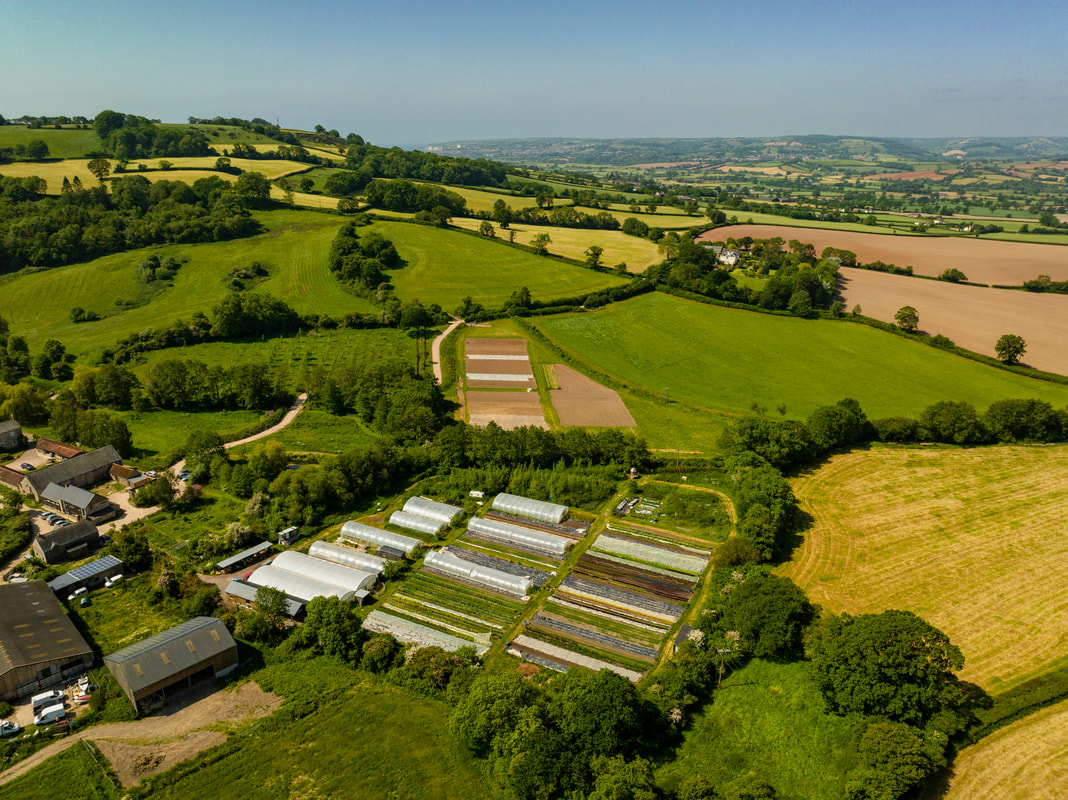
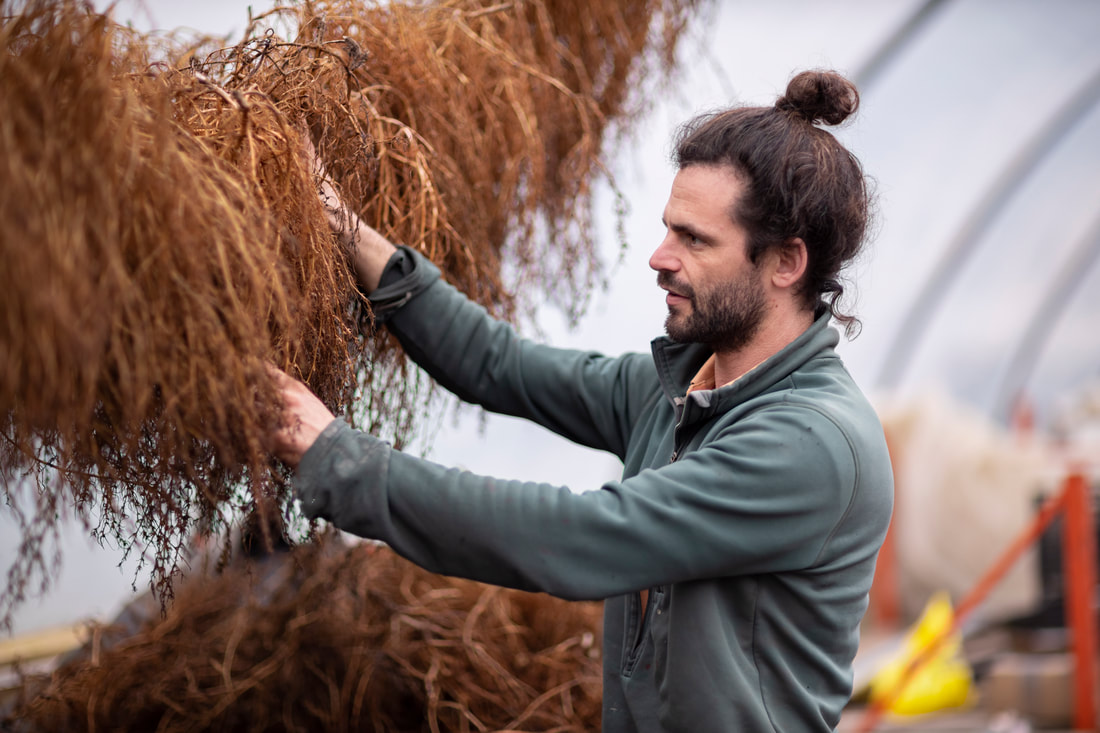
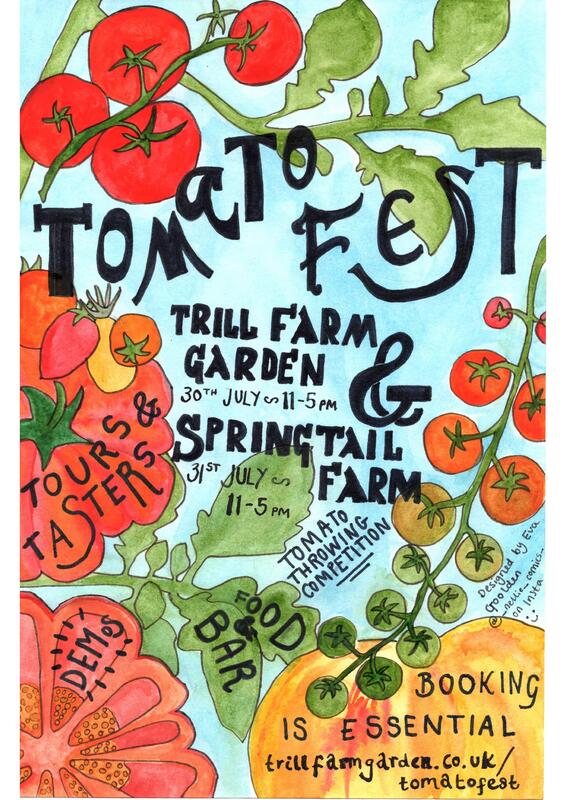
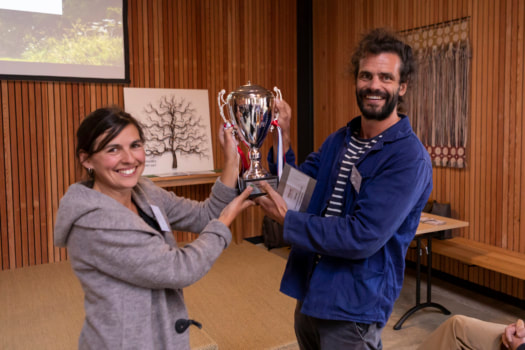
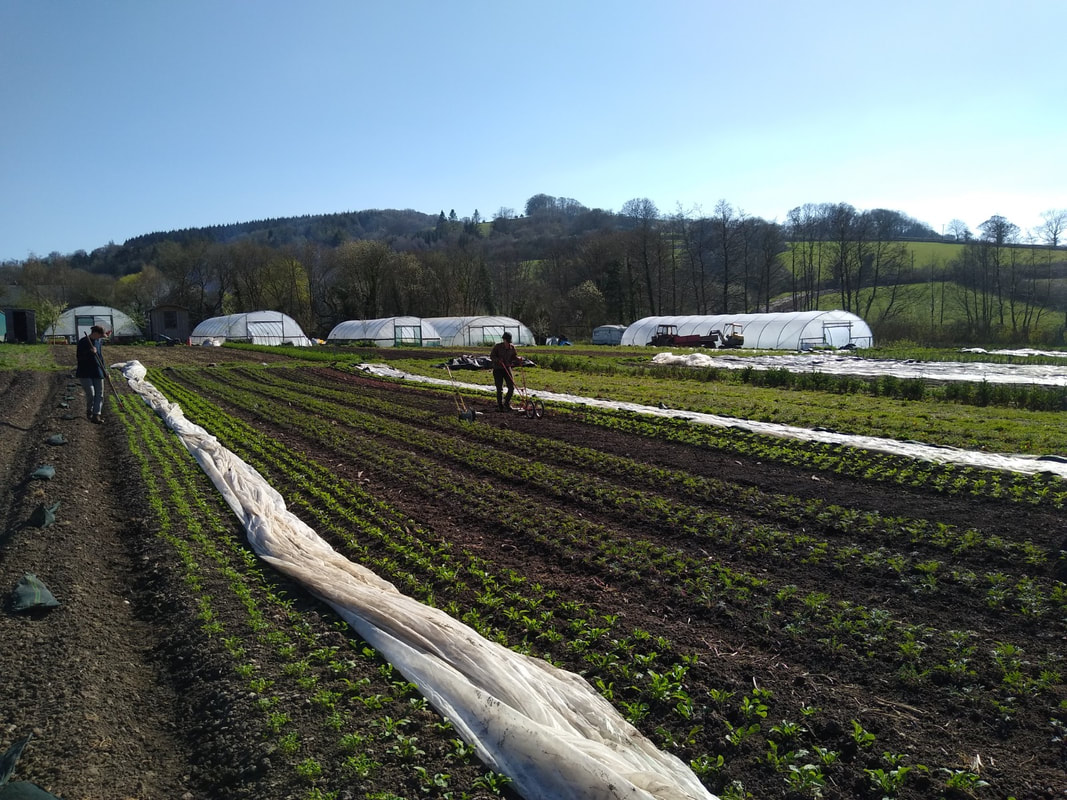
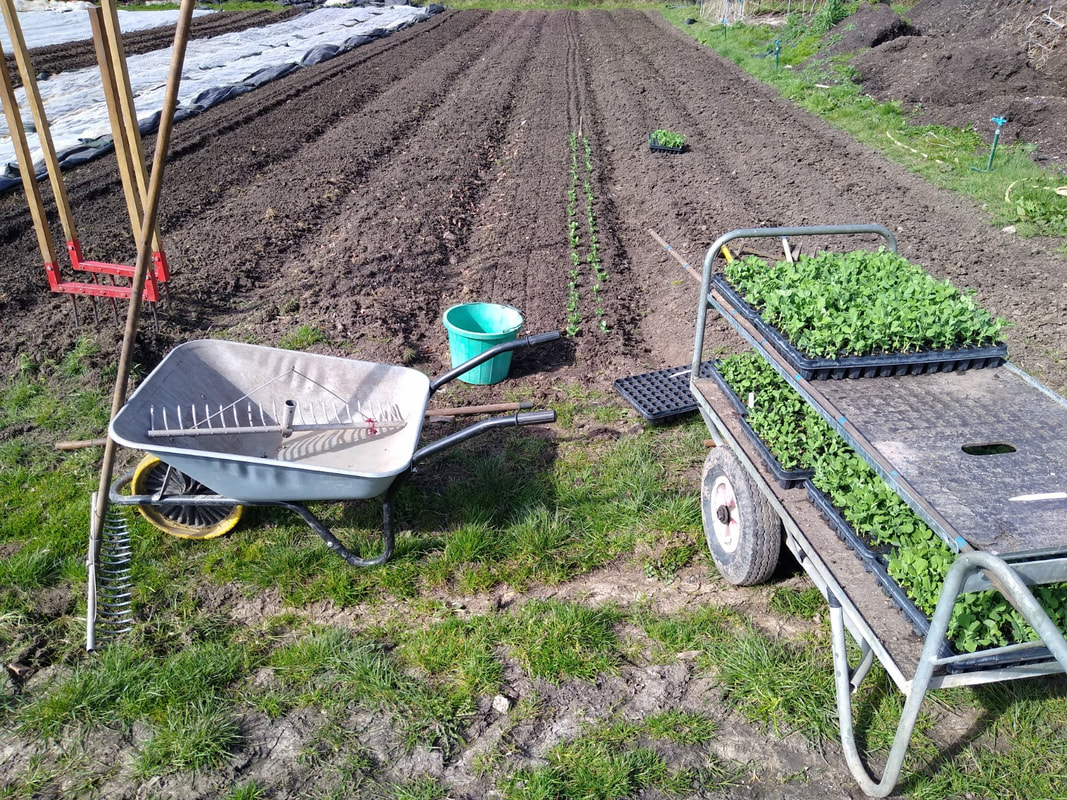
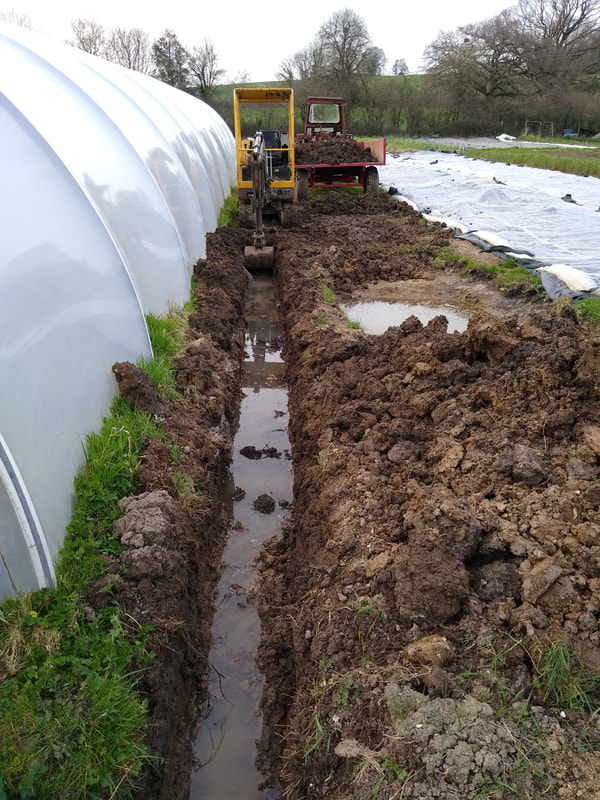
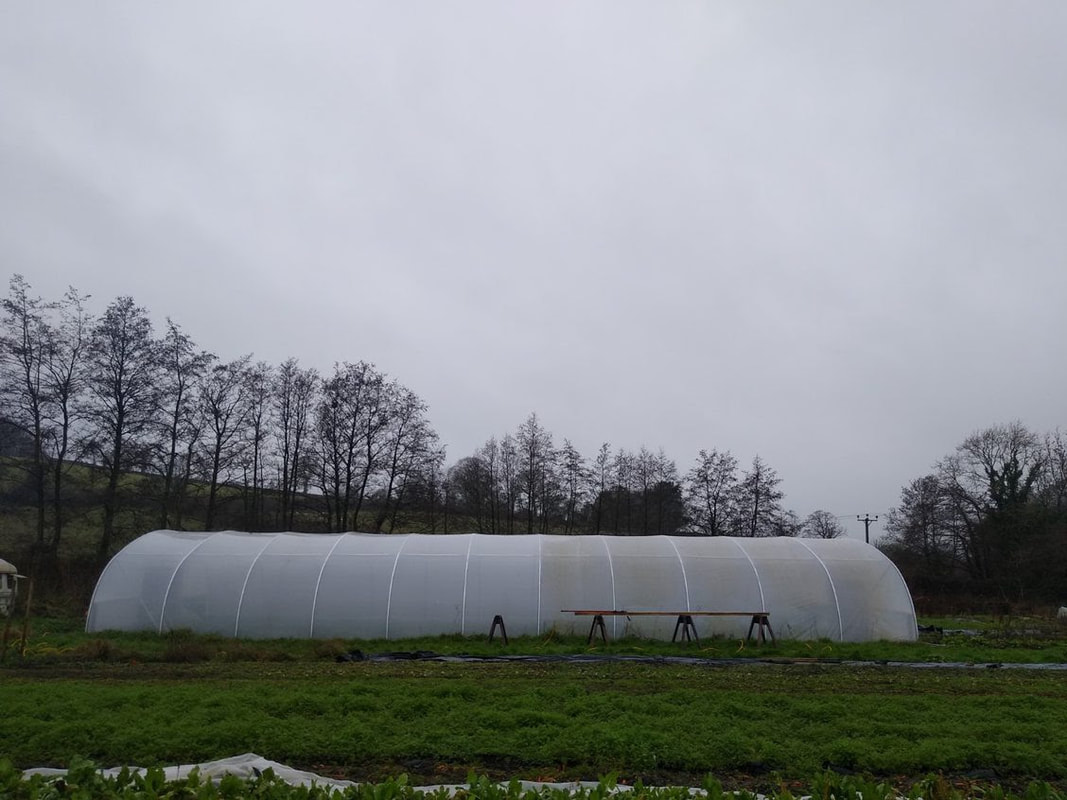
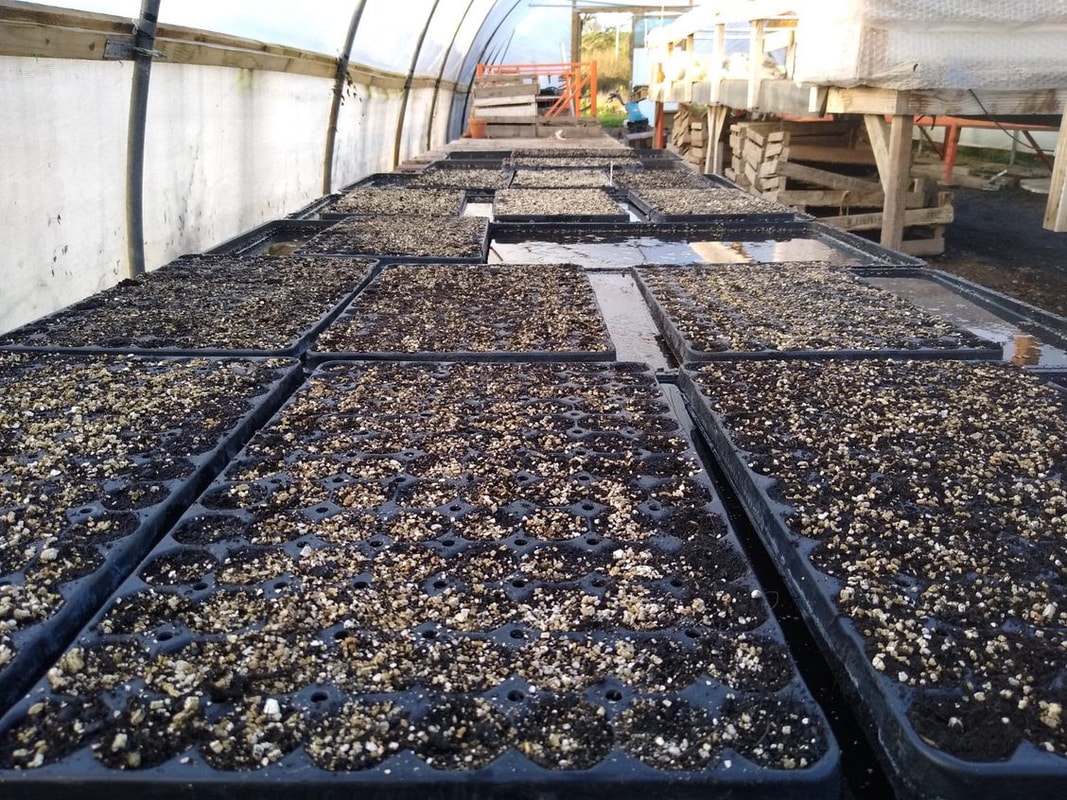
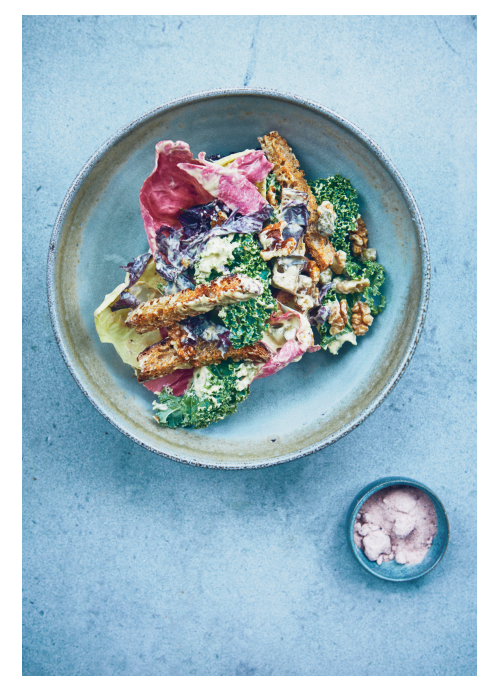
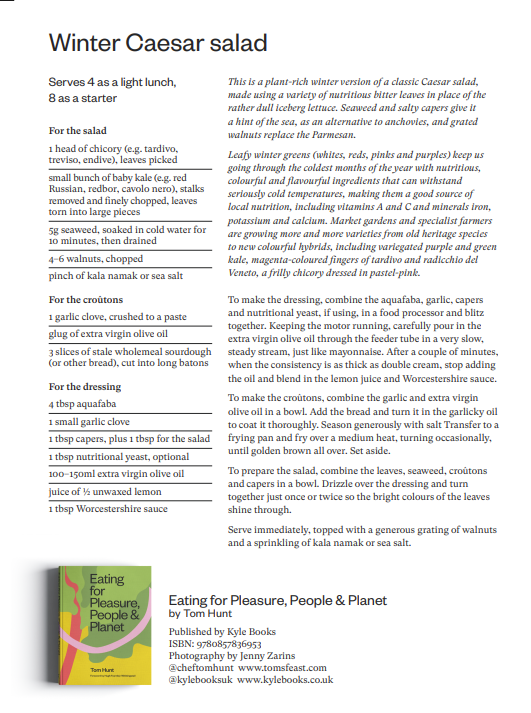
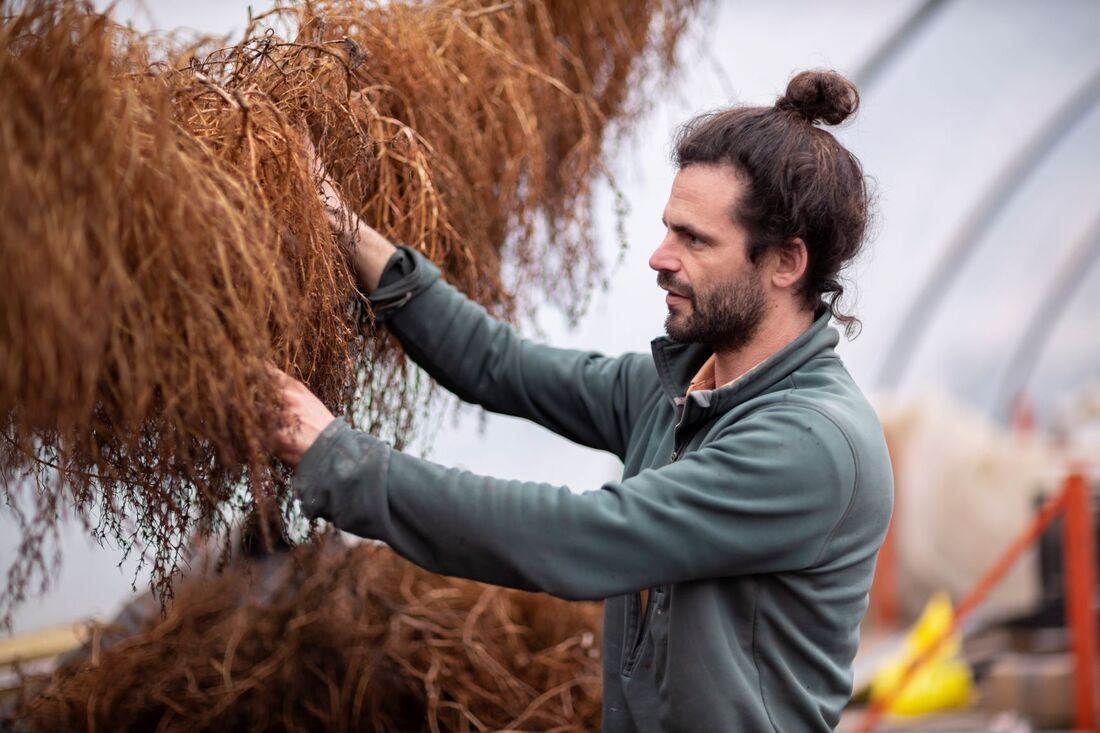
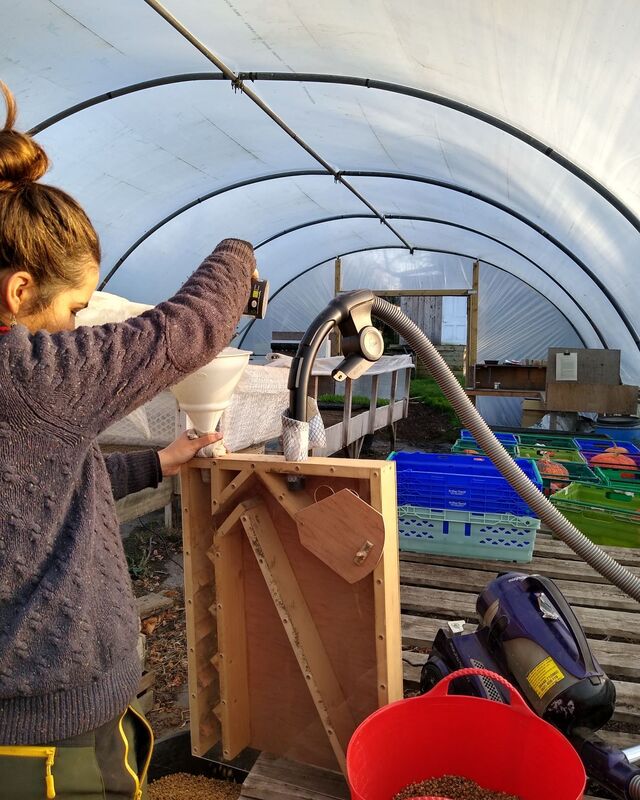
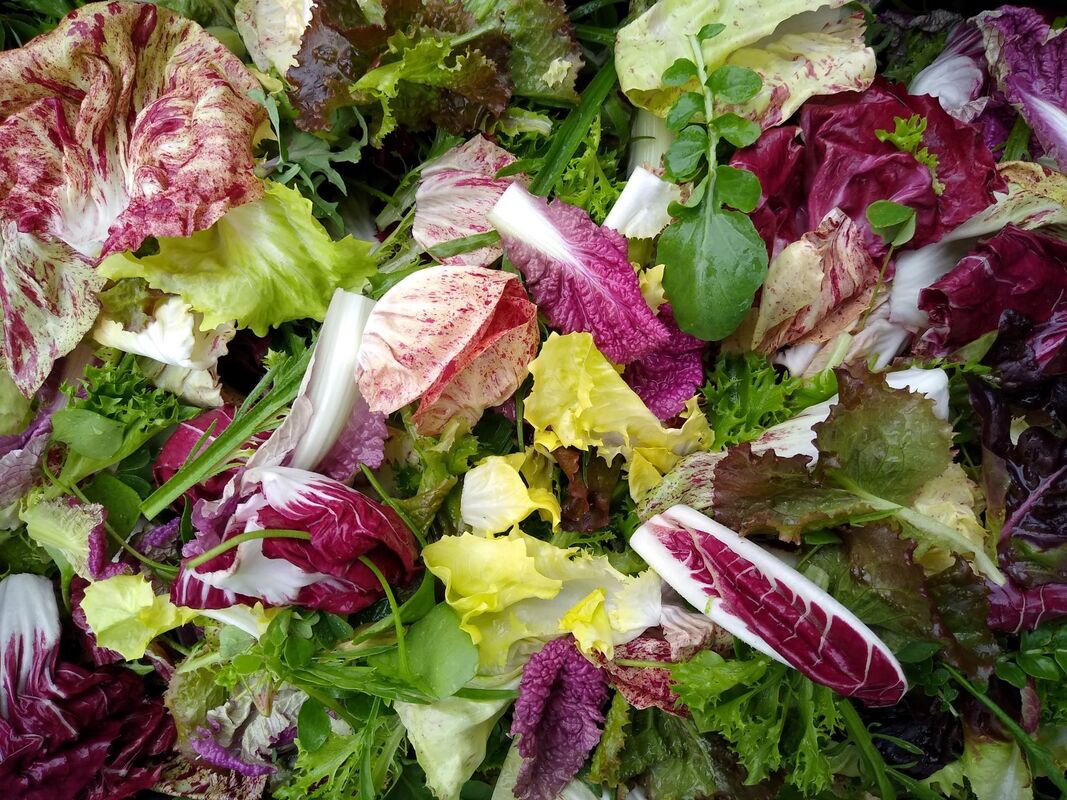
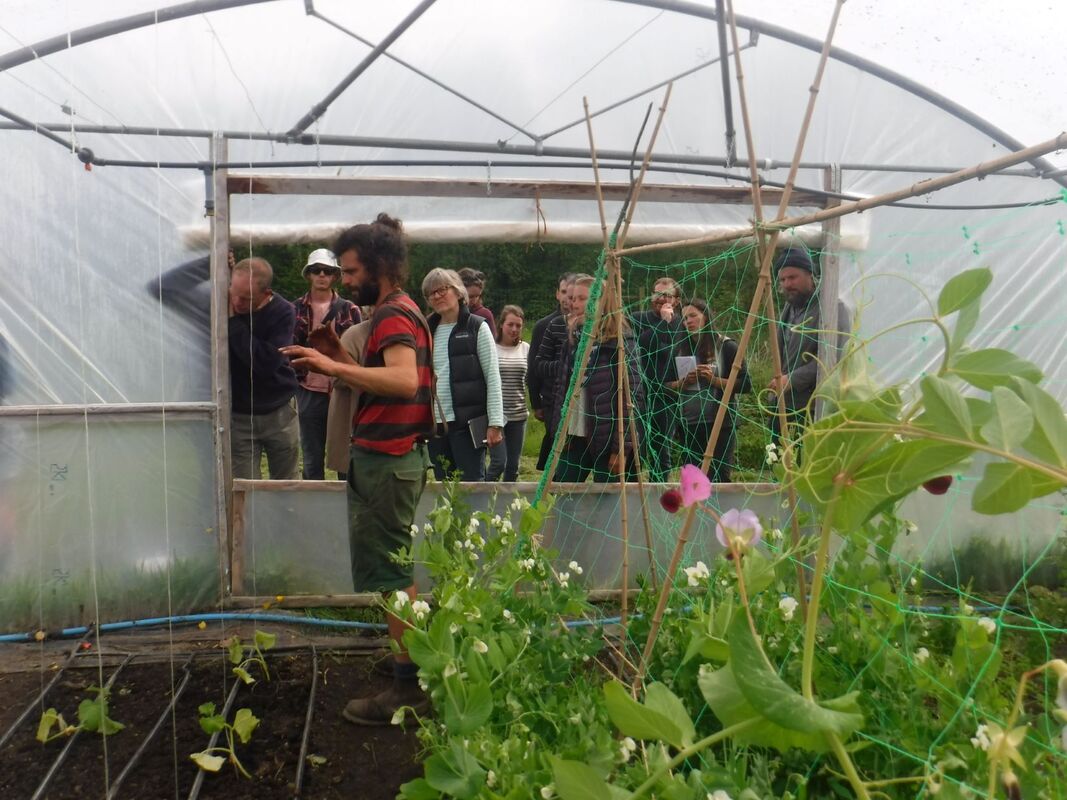
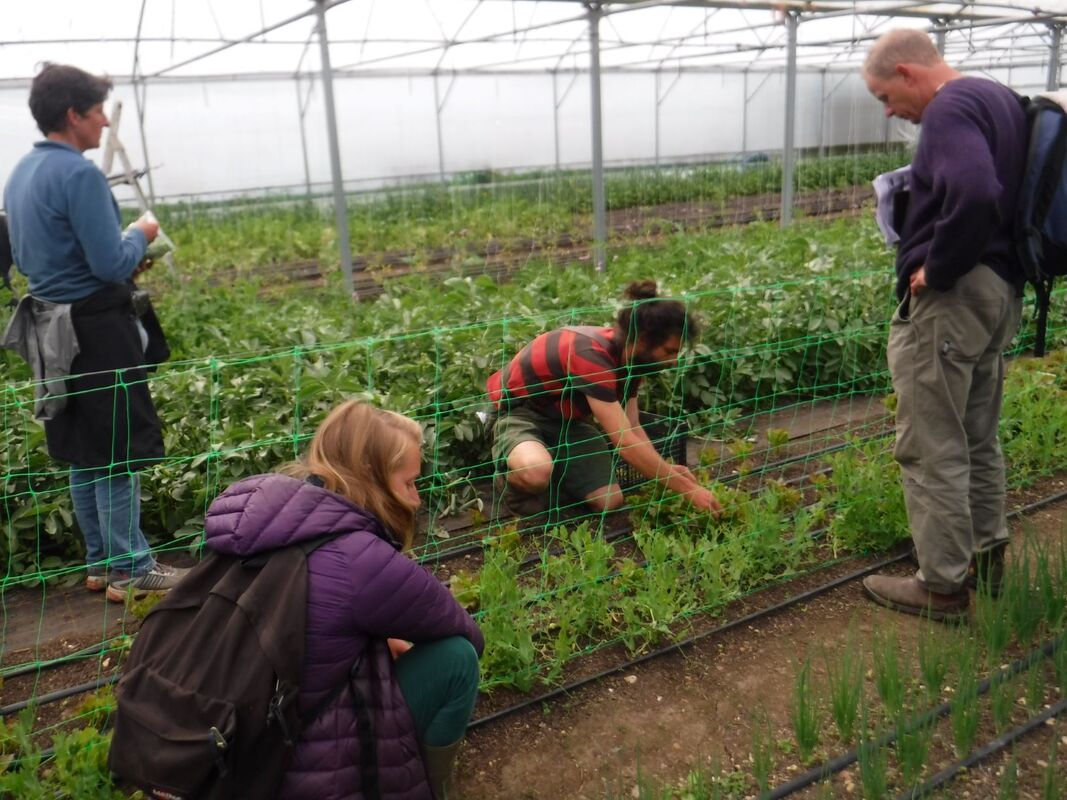
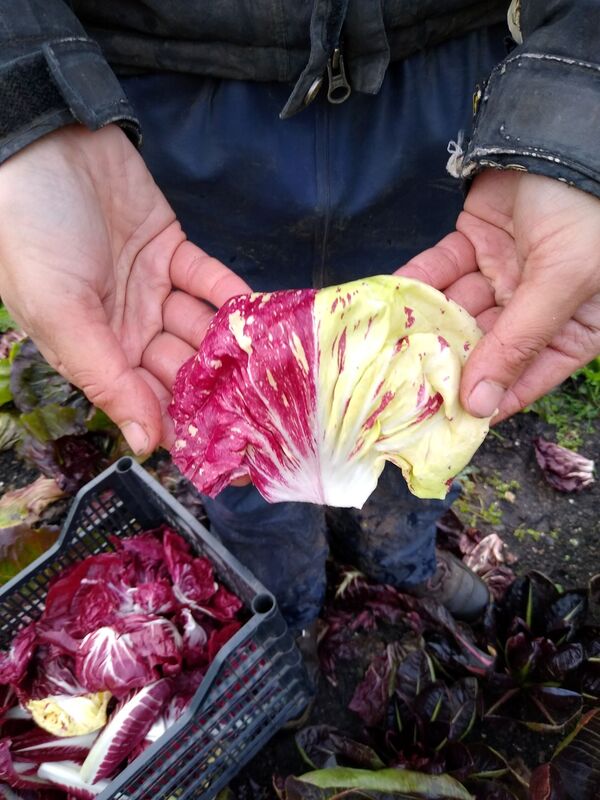
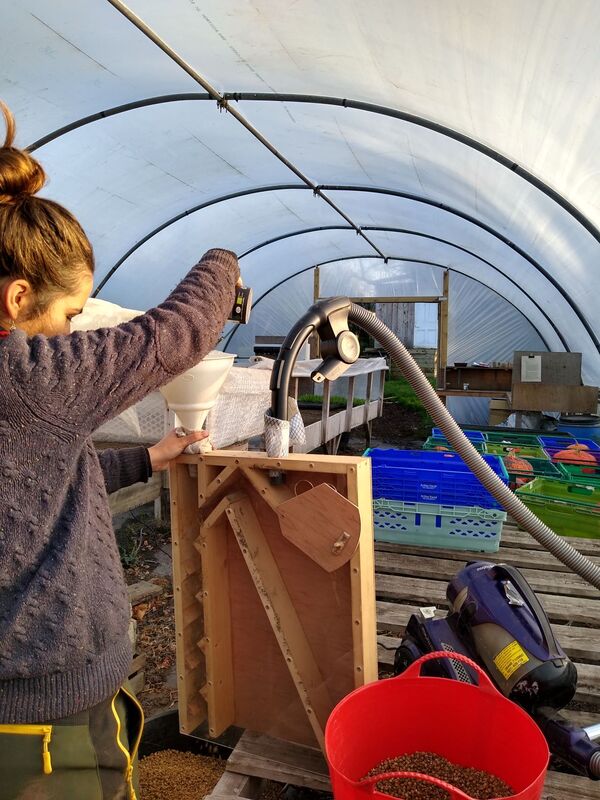
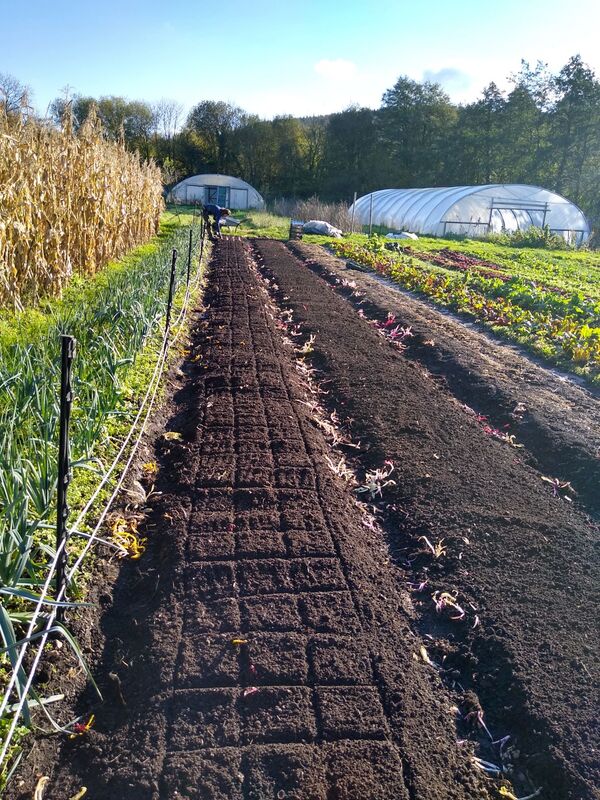
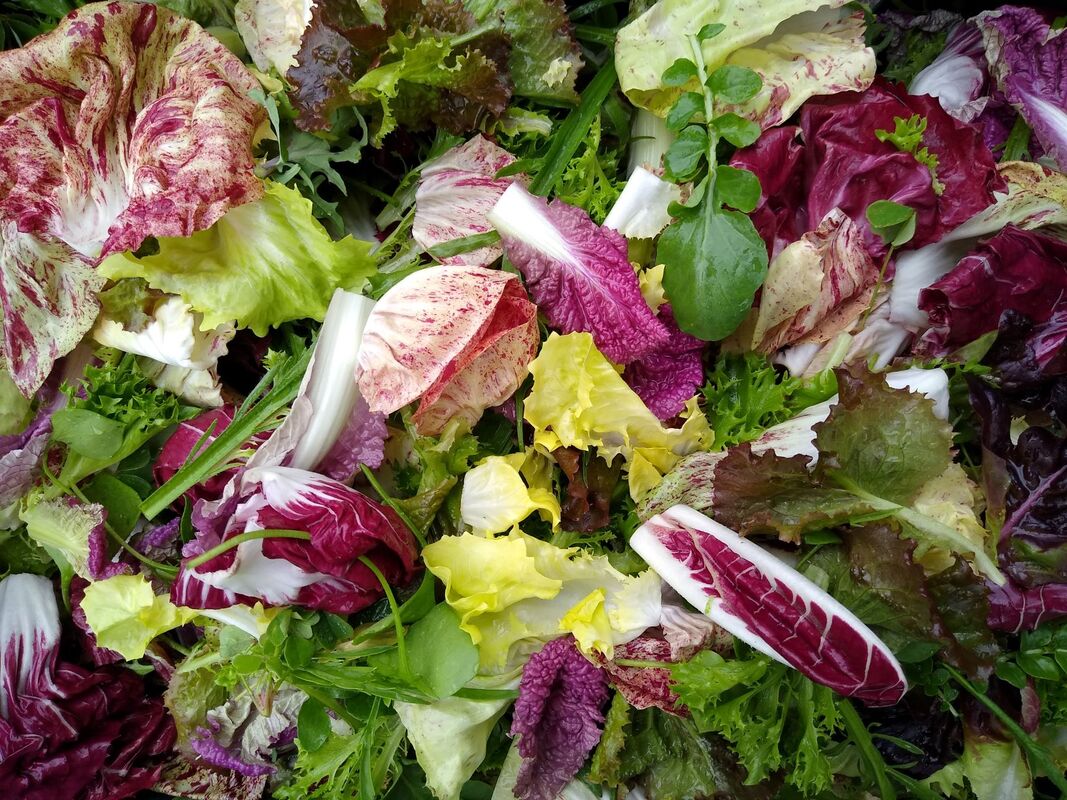
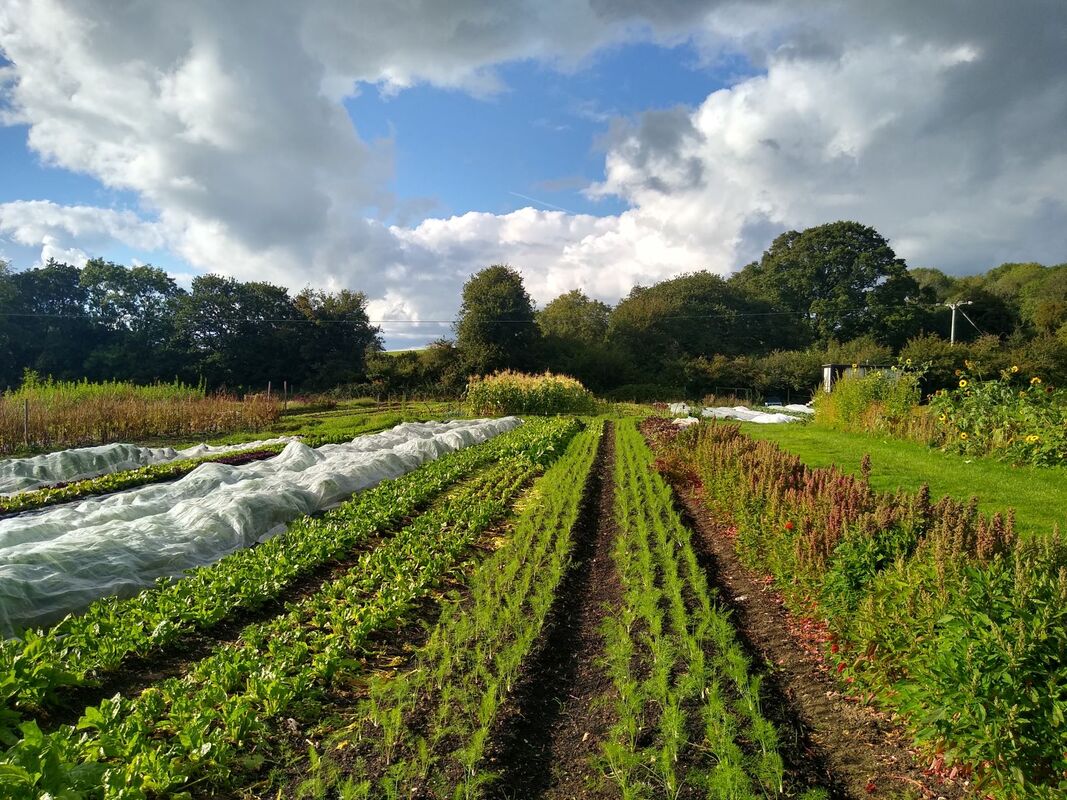
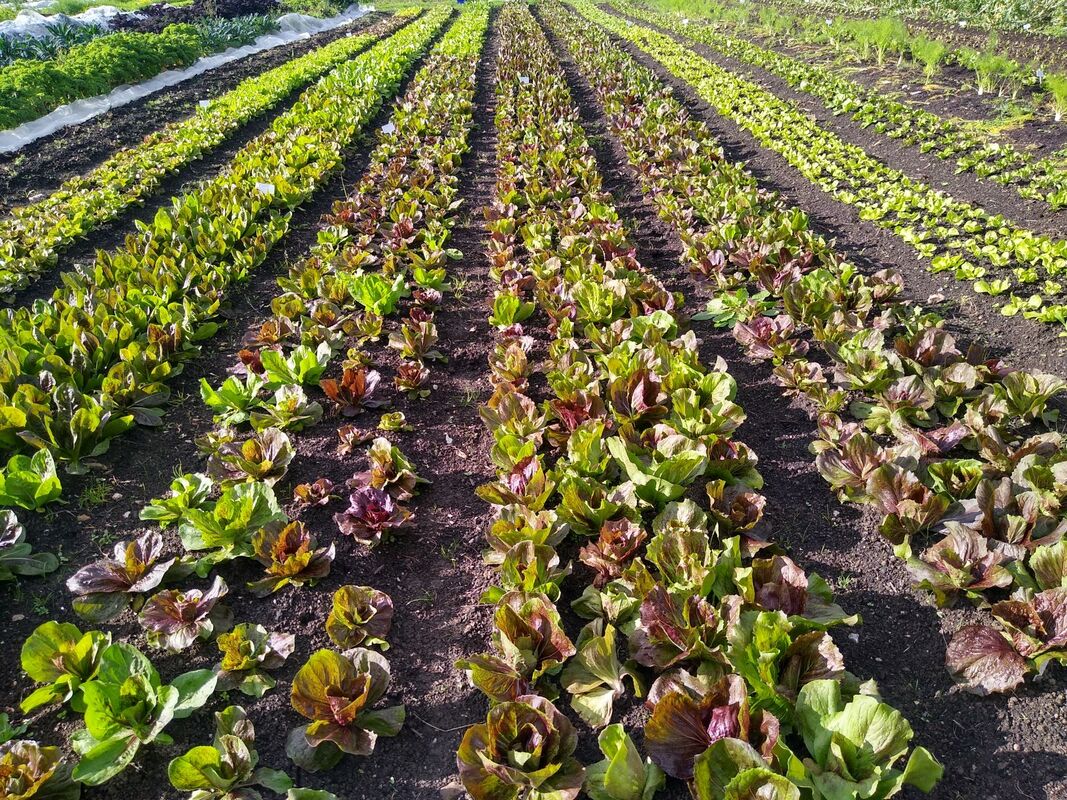
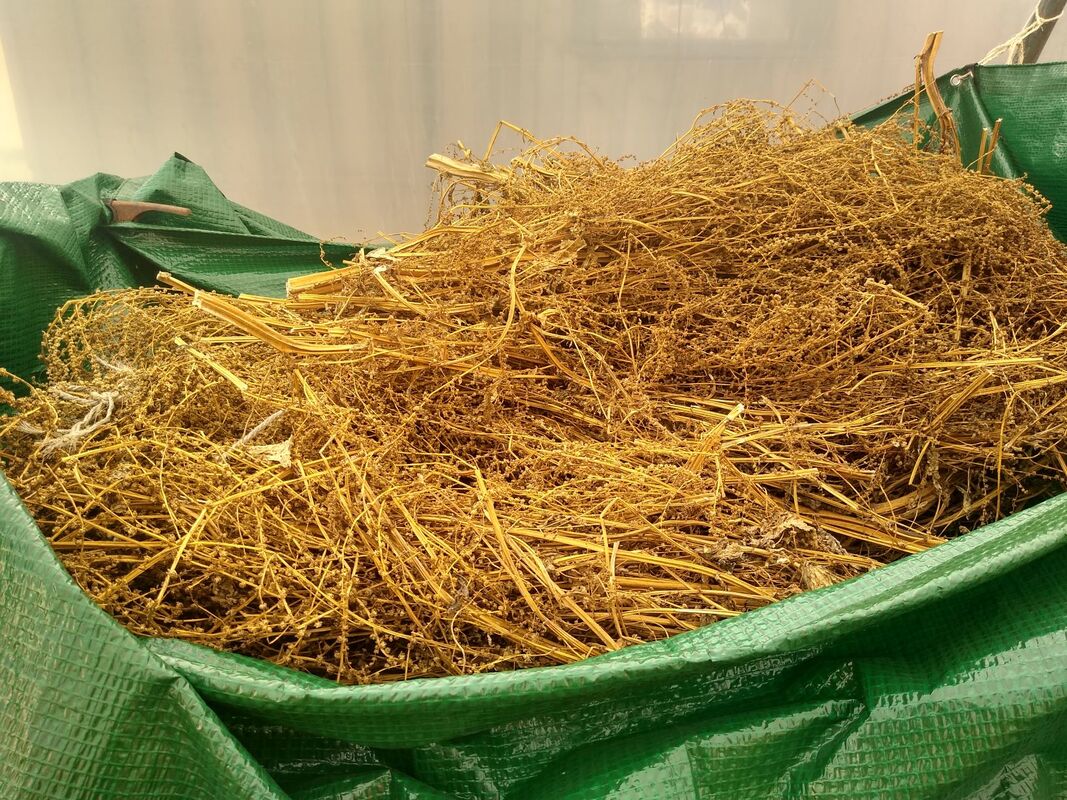
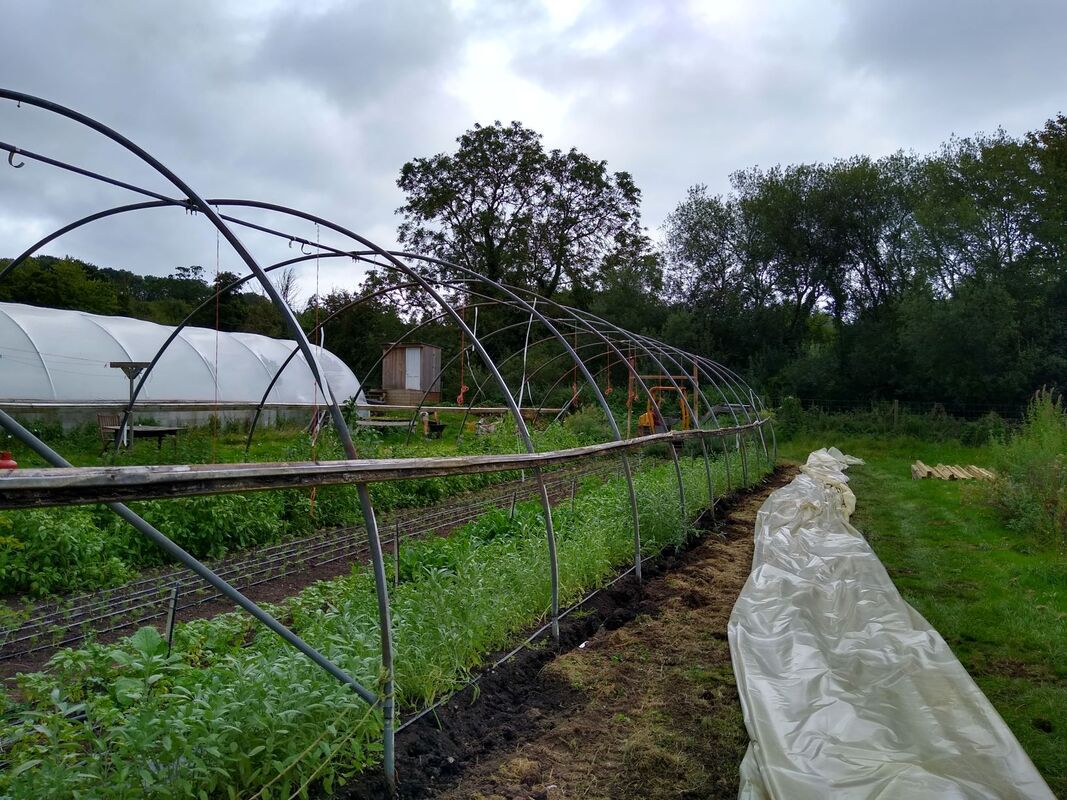
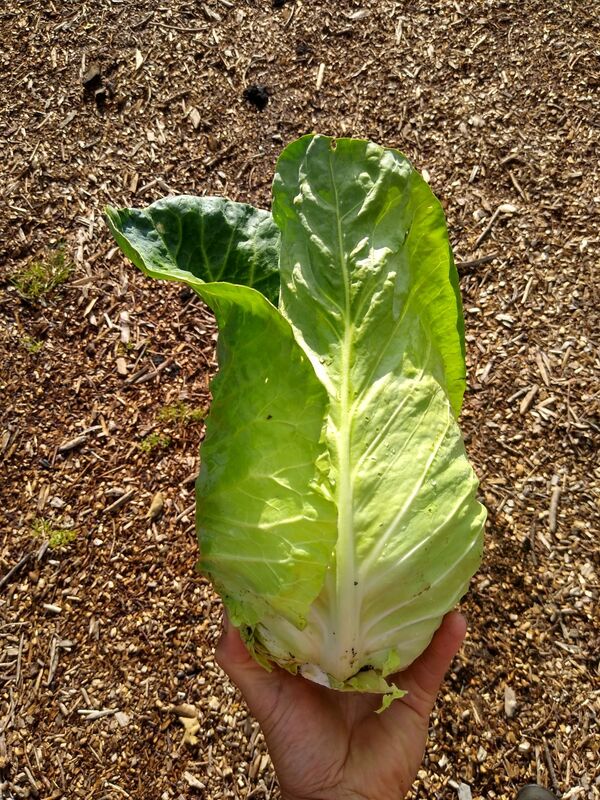
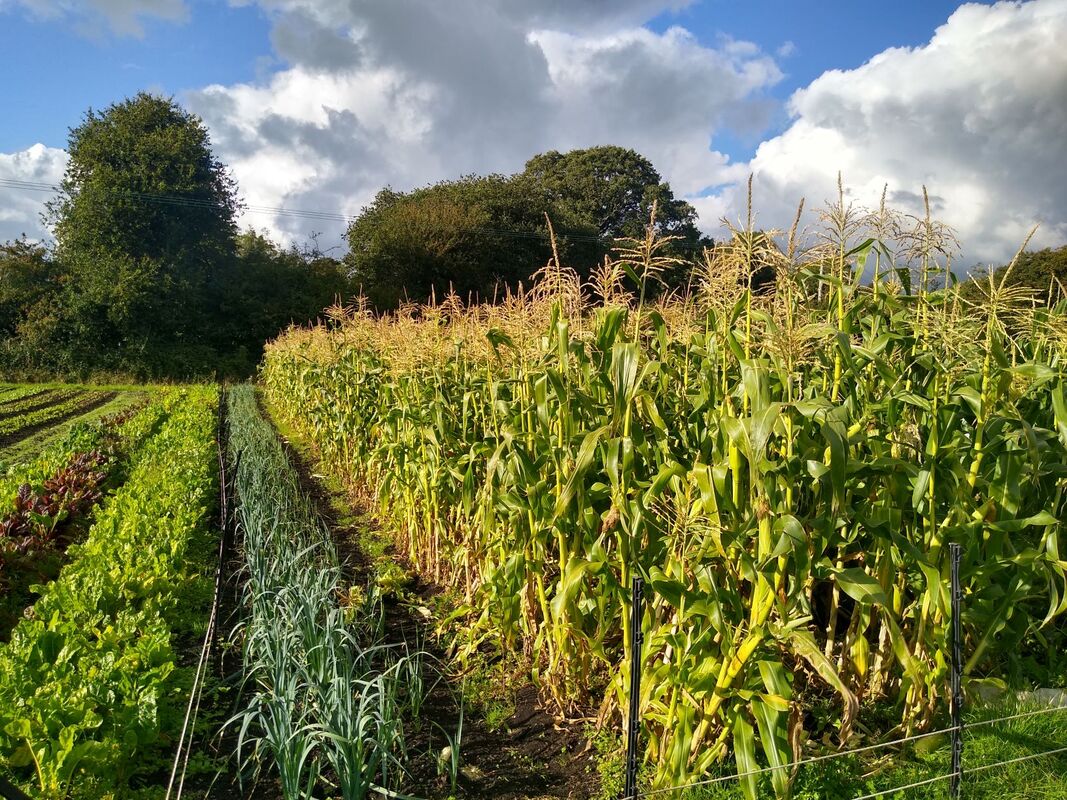
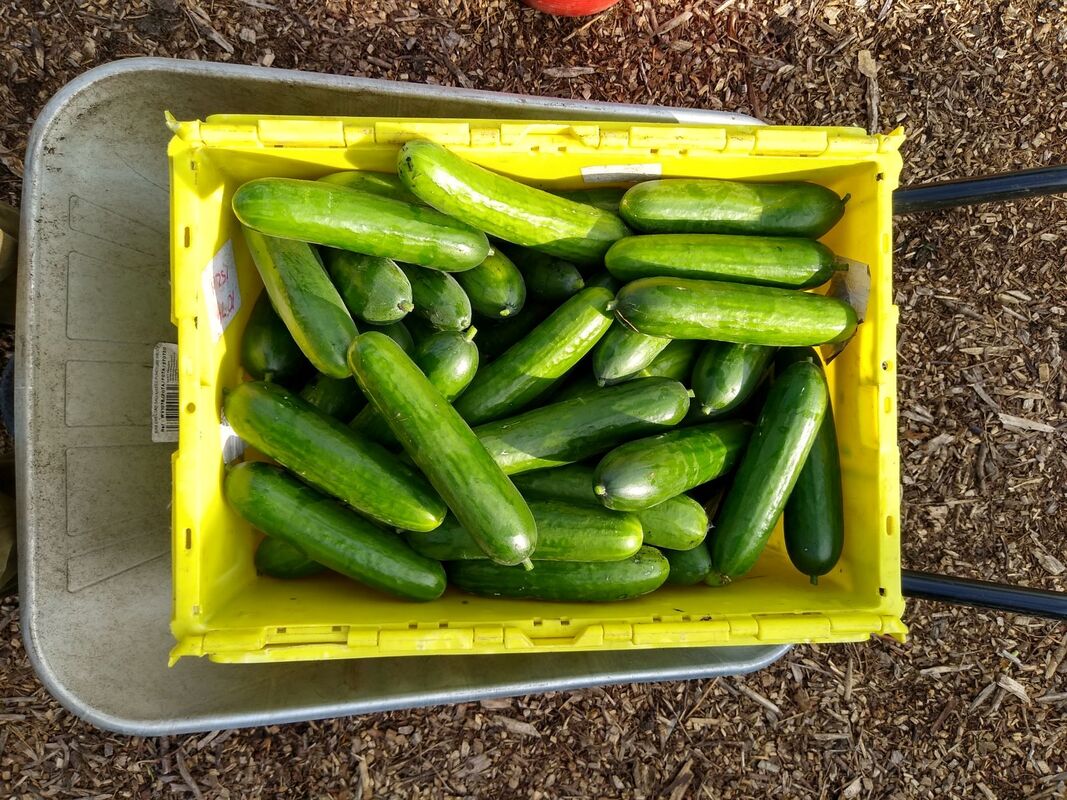
 RSS Feed
RSS Feed